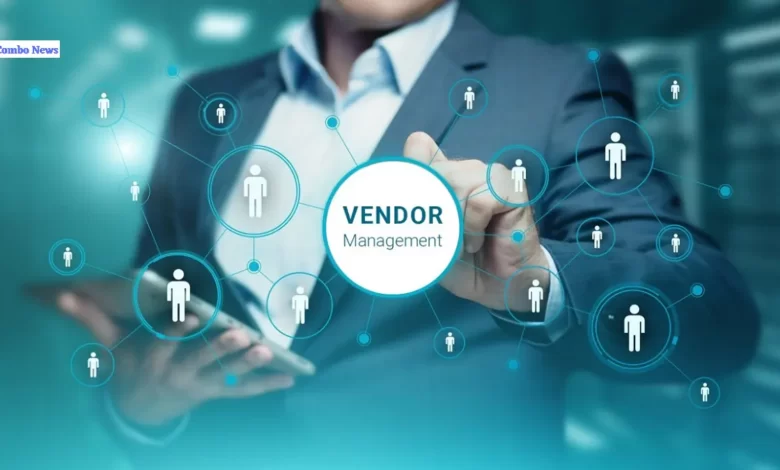Vendor Management In The Digital Age: Leveraging Technology For Better Outcomes

In the Digital Age, vendor management is essential as businesses increasingly rely on third-party vendors to supply various services and products. Outsourcing has become common practice in today’s business environment for small businesses and organizations seeking to reduce expenses, boost efficiency, and focus on their core competencies.
However, outsourcing comes with risks and challenges, such as vendor performance issues, compliance violations, and security breaches.
Technology investments are critical business drivers, and vendor management teams are important in supporting and bringing business plans for digital transformation to life.
What Is Vendor Management?
Vendor management selects, analyzes, and manages vendors to ensure they fulfill the company’s objectives, comply with relevant regulations, and provide high-quality services or products. Identifying potential vendors, evaluating their skills and performance, negotiating contracts, monitoring their performance, and addressing any difficulties are all part of the vendor management process.

The growing importance of digital technology requires a shift in vendor management. Procurement and vendor management should now be considered essential components of a company’s overall business strategy.
Also Read | Smart Solutions for Wellness: Technology Use for a Balanced Life
The Importance Of Vendor Management
Organizations increasingly turn to cloud-based technology solutions such as a VMS or vendor management system to stay globally competitive and profitable in this digital era. Here’s why:
- A VMS can help you control labor costs, enhance productivity, and improve efficiency.
- A VMS can give HR and procurement management the transparency required to ensure that their company hires qualified external workers with the necessary certifications and credentials.
- The business can increase the value of all relationships with service providers with proper coordination between procurement and HR and the engagement of the right VMS.
Companies deal with various vendors, each with pay rates, contract conditions, and contact points. IT vendor management teams are managing more IT vendors than ever. However, the majority of the job is spent on day-to-day tactical management.
How Can Technology Help In Vendor Management?
Here are several ways new technology could help businesses reach their digital goals faster by supporting the vendor management function.

Automated vendor selection and evaluation
Traditionally, vendor selection and evaluation have been time-consuming and error-prone manual operations. However, companies can now automate the vendor selection and review process thanks to technological advances. Vendor management software can construct a database of vendor capabilities, performance history, compliance status, and price. This database can be used to find possible providers who fulfill the firm’s needs rapidly.
Furthermore, the software can evaluate providers based on predetermined criteria such as their ability to achieve service level agreements (SLAs) and compliance with industry regulations.
Centralized vendor communication
In vendor management, effective communication is critical. To ensure that vendors are achieving the company’s standards, businesses need to be able to contact them frequently. Managing communication with several vendors, however, can be difficult.
A vendor portal can be used to centralize vendor interactions through technology. This portal can be used to communicate information with vendors, track vendor performance, and receive feedback from the vendor. The portal can also automate communication by sending notifications when a vendor is selected, or an SLA expires.
Also Read | Scaling Your SaaS Venture: Essential Tips for Sustainable Growth
Real-time monitoring and reporting
In vendor management, real-time monitoring and reporting are also essential. Companies need to be able to monitor vendor performance in real-time to ensure that SLAs are met, and issues are resolved promptly.
Companies need to be able to develop vendor performance reports to identify trends and areas for improvement. Through vendor management software, technology can be leveraged to automate monitoring and reporting. This software can continuously monitor vendor performance and create reports on key performance indicators (KPIs) such as response time, issue resolution time, and compliance status.
Risk management
Vendor management also involves risk management. Companies must identify and minimize vendor risks such as data breaches, compliance violations, and service outages. Through vendor management software, technology can be leveraged to automate risk management. This software can identify associated vendor risks and track risk mitigation efforts.
In addition, the software can be used for upkeep and tracking vendor contracts, ensuring that all parties are aware of their responsibilities and liabilities.
Data Analytics
In vendor management, data analytics is becoming increasingly important. Companies need to be able to analyze vendor data to find opportunities for improvement and optimize vendor performance. Through vendor management software, technology can be leveraged to automate data analytics. The software is useful for gathering and analyzing vendor data such as SLA performance, issue response time, and compliance status. This information can be utilized to get insights into vendor performance and identify areas for improvement.
Conclusion:
To sum it up, vendor management is essential in the digital era due to the increased reliance on third-party vendors to offer key products and services. Effective vendor management practices can help lessen outsourcing risks by ensuring vendors fulfill performance goals, comply with laws, and deliver quality services or products. Companies can improve vendor management procedures and obtain better results by utilizing technology.
Also Read | Microsoft Loop: Bridging the Gap Between Teams and Success








